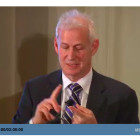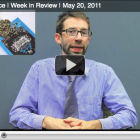
Opinion: Apply Brain Science to Plea Bargains For Developmentally Informed Approach
|
Imagine being 16 years old, arrested and charged with a crime after getting into trouble with a friend. You will remain locked up until your hearing. You haven’t spoken to anyone about what's going on. Eventually, you meet your attorney 45 minutes before court and he says the prosecutor wants to offer you a deal. If you admit guilt, your punishment will be lighter than if you are found guilty in juvenile court.
You ask if you can have time to think and talk to your mom but the attorney says you must decide quickly because your hearing starts in 30 minutes.




